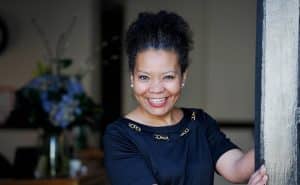Why it’s Time to End the Divorce Blame Game
Reading Time: 3 minutesAs a family lawyer who has been trained as a Collaborative practitioner also, the notion of a divorce option which enables people to formally start their separate lives, without the pre-requisite of blaming the other party, is nothing less than decent common sense.
A good divorce (and this is a relative and very personal concept of course), does not begin from a position of attributing guilt, and cannot be about promoting punishment and retribution. To have any hope of softening the impact of the inevitably emotional process, the initial language and perspectives must change.
A tale of two moralities
I recall a divorce case of mine in which both the husband and the wife clearly expressed a wish not to refer to acrimonious behaviour (and, to be fair, there was little to be cited), as they simply wished to secure the Decree Absolute and part on a calm, non-accusatory basis. I took my Client’s instructions as to the sad, very real, and regretted “drifting apart” and the “mutual decision” to spend time with other people, and drafted the particulars of the “behaviour” petition as such.
I advised my Client that the Petition was likely to be rejected due to its conciliatory nature and that they may just have to wait two years, whilst living as separate entities, to be able to start a non-fault divorce which would sit comfortably with them. My Client and the other party were keen to press on as they had new lives to embark upon and no residual issues to address.
So, the kind, but rather “weak” Petition was sent to the Court, only to be returned, with a predictable cover letter stating that the parties should consider reconciliation or refer to behaviour of greater enormity. The latter course of action was adopted, with no enthusiasm by the parties and with much understandable reluctance, as it confirmed all they had feared about the UK Courts and the divorce system: it can be abrasively adversarial, where the exact opposite is required. I was apologetic of the system and sympathetic to their sentiments.
So what are the Lawyers doing about it?
The family law group, “Resolution: First for Family”, continue to campaign for a no-fault divorce which can be instigated without the parties having to live separately for 2 years. Many couples are compelled to stay living in the same home, post-break-up, due to financial constraints and an ever-changing housing market, and so are unable to jump through the separation hoop.
On Wednesday 30th November, a delegation of Resolution lawyers will take the message to directly to the Houses of Parliament, and we can only hope that expeditious change will follow for the benefit of future generations of divorcing couples, and their families.
Good, better and best…
A fault-based divorce does not establish a suitable foundation for discussing children’s matters in a sensitive way, and it is equally at odds with attempting to address the financial issues in a fair way. Engaging in the Collaborative process can help. Resolution provided my Collaborative law training. It is fundamental to the Collaborative approach that our Clients have the space to set their own agendas and address all issues in a conciliatory and non-combative way. A non-fault divorce will fit extremely well within this and other methods of dispute resolution.
In the meantime, Collaborative practice can help to take the sting out of the current divorce options, not least as the “behaviour” to be included in the petition, and the reasoning for the current requirement, can be openly discussed in a joint meeting, with the over-arching aim of keeping things respectful, being brought to the fore.
If the law doesn’t seem quite good enough for you at present, please contact the BG Family team. We’ll better your expectations, and advise you as to the best options for you and your family.
Article by Jacqueline Mensah, Family and Collaborative Lawyer

Jackie Mensah – Family and Collaborative Lawyer
The information contained in this article is for general guidance only and is not intended to be legal advice. Professional advice should always be taken on the application of the law in any particular situation.
